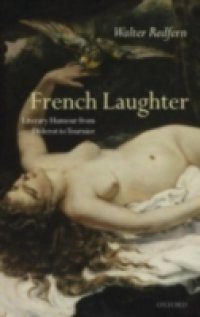The culmination of a lifetime's fascination with humour in all its forms, this book is the first in any language to embrace such an impressive span of authors and such a broad range of topics in French literary humour. In nine wide-ranging chapters Walter Redfern considers diverse writers and topics, including: Diderot, viewed as a laughing philosopher, mainly through his fiction (Les Bijoux indiscrets, Le Neeu de Rameau, and Jacques le fataliste); humourlessness, corraling Rousseau, Sade, the Christian God, and Jean-Pierre Brisset; the aesthete Huysmans, in both his avatars, Symbolist and Naturalist (A Rebours, Sac au dos, and other texts); the dramatic use ofparrots by Flaubert, Queneau, and Beckett; Vallès and la blague; exaggeration in Vallès and Céline (Mort à credit and L'Enfant); the fiction, plays, and autobiography of Sartre; bad jokes in Beckett; wordplay in Tournier's fiction (especially Roi des aulnes and Les Météores). Five interleaved 'riffs' on laughter, dreams, black humour, politics, and taste, carry the enquiry into questions of humour outside of the purely French context, enhancing a book that impresses as much with its vivacity of style as with the breadth and depth of its scholarship.

